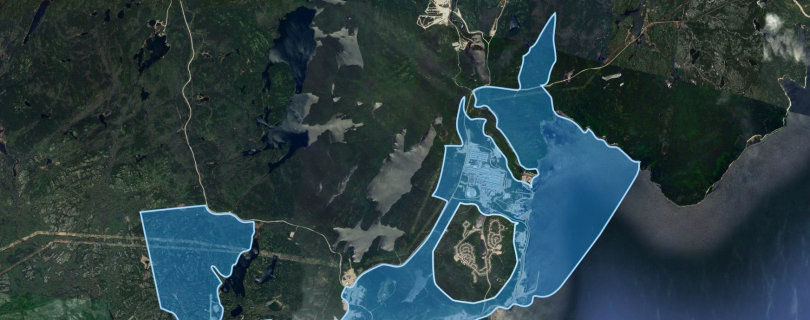

“All the work has been done, we just have to wait for the news,” says the mayor of Baie-Comeau. Last week, the city council granted $250,000 to an engineering firm to draw up plans to optimize the Jean-Noël Tessier industrial park and encourage businesses to establish themselves in the region. However, Quebec’s decision regarding the energy blocks could either save or hinder the economic development of the North Shore.
This new initiative is one of the many measures taken by the City of Baie-Comeau to attract industry to the region, including battery industry companies.
In fact, Baie-Comeau intends to connect the significant Jean-Noël Tessier industrial park, seen as the next center of economic development in the region, to Route 389, which connects Baie-Comeau with the mining town of Fermont.
Mayor Michel Desbiens does not want to give a price yet for this new infrastructure but indicates that it was necessary
. Sewer and drinking water conduits could also be installed.
By developing this industrial park and engaging with businesses, the City aims to act as a facilitator
so that businesses desire to establish themselves in Baie-Comeau, according to the mayor.
However, these new expenses and infrastructures will not be realized until good news
is received, says Michel Desbiens.
The city hall is waiting to see if one of the numerous developers considering building factories on the land will receive the energy blocks allocated by the Ministry of Economy, Innovation, and Energy.
The ball is in the ministry’s court, concludes the mayor of Baie-Comeau.
A Quebec decision with significant consequences for the region
Twice, the mayor of Baie-Comeau has met with the Minister of Economy, Innovation, and Energy, Pierre Fitzgibbon, and his team to discuss the region’s industrial potential, but also the need to see a new industry established in Baie-Comeau.
After the closure of the Baie-Comeau paper mill in 2021 and the demolition of the old Soderberg cells at the Alcoa aluminum plant the same year, the city needs new revenue
, explains the mayor.
Despite the city’s efforts, the future of industrial projects in Manicouagan and on the North Shore will largely depend on the decision of the Ministry of Economy, Innovation, and Energy to allocate energy blocks to future projects on the North Shore.
Indeed, Quebec’s recent announcements on this matter have left a bitter taste among the region’s stakeholders.
Since 2015, the Quebec government has granted a total of 2500 MW to companies across the province. According to Guy Simard, director of industrial development at ID Manicouagan, a fraction of these energy blocks, 69 MW, have been granted to companies on the North Shore, including Minerai de fer Québec.
More than 60% of electricity block allocations since 2015 have benefited Montérégie and Mauricie, Mr. Simard estimates, referring to the project by the Swedish company Northvolt.
“If companies don’t have access to the necessary energy to develop their projects, then the North Shore suddenly loses its trump card.” A quote from Guy Simard, director of industrial development at ID Manicouagan.
He argues that energy is a determining factor for companies and their investment decisions
.
Guy Simard highlights the advantageous characteristics and infrastructures of the North Shore, including deep-water ports, railway infrastructure, vast mineral-rich territory, and above all, proximity to substation networks and electricity production sources.
According to him, a region that produces a third of the electricity [du Québec] should normally have the ability to allocate it to companies
.
Companies have until March 31 to submit their projects to the ministry. The ministry’s decision will be known in the coming months.
Source: Radio-Canada
